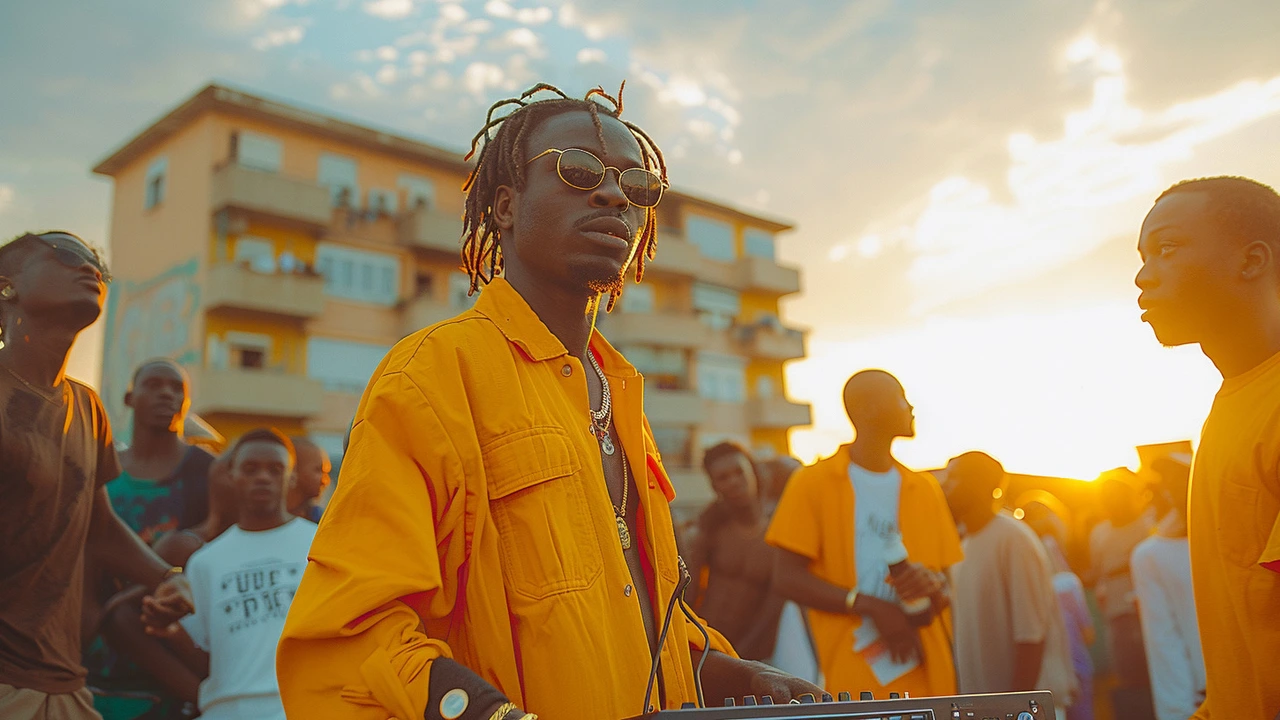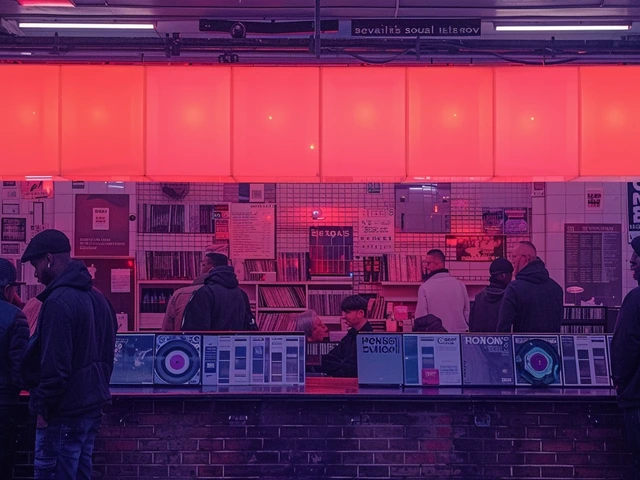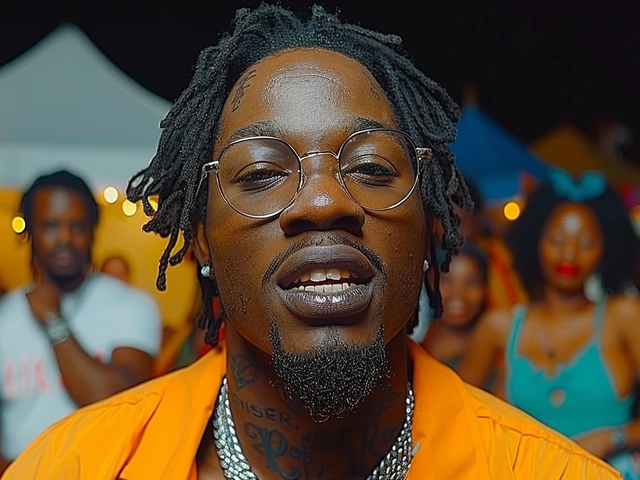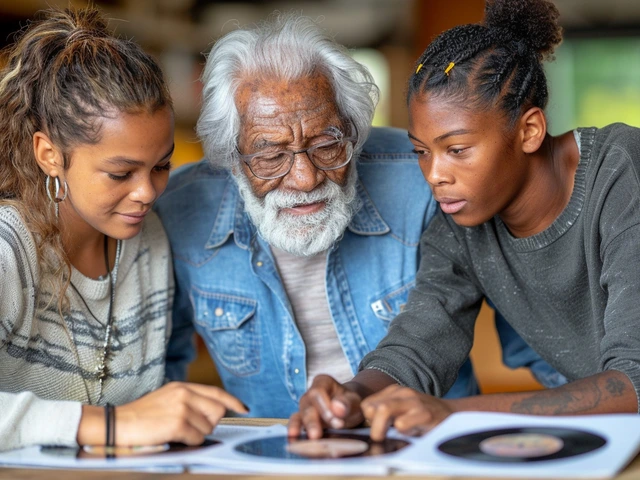The Roots of Hip Hop: The Powerhouse of Youth Culture
Being Theodore, a dad, and a self-proclaimed music connoisseur, the evolution of hip hop music and its tie to youth culture has always been a fascinating topic for me. It's a rich narrative, one that unrolls like a sonic tapestry, capturing the pulses of city life and the beat of youthful energy. Let's dive into the roots of hip hop, shall we?
Hip hop emerged from the Bronx during the 1970s. This dynamic art form offered a potent platform for African-American and Latino youths to voice their discontent and aspirations. It was more than music; it was a cultural expression. The rhymes and rhythms encapsulated their life stories - the struggles, the triumph, and the dreams.
The Great Marriage: Hip Hop and Youth Rebellion
Teenagers and rebellion are like bread and butter, a timeless pairing. This rebellion has fueled every youth subculture from the rock n’ roll of the 1950s to punk in the 1970s. Come the late 20th century, the youth found hip hop. It was a new kind of rebellion: vocal, gripping, and rhythmic, it was music that made you think as much as it made you groove.
Hip hop was a microphone for the voiceless, a language for silenced stories. It gave young people, often marginalized and dismissed, a platform to express themselves and their frustrations. Hip hop was more than just beats and lyrics; it was a political statement, a rebellious anthology of raw emotions.
Breaking Barriers: Hip Hop’s Global Appeal
What started as a localized music form in the Bronx quickly seeped into mainstream culture. Why? Because it had something to say. Youth around the world resonated with the raw honesty of hip hop. It was a universal link, a shared language of rebellion and desire for change.
Sweeping across continents, hip hop found a home in every urban corner of the world, from France to Japan. It was here, in these global iterations, that the mosaic of hip hop truly came to life. Each culture added their own elements, their own stories to the hip hop canon, creating a vibrant, diverse genre.
Shaping Personal Identity: The Youth-Hip Hop Connection
The relationship between hip hop and youth culture is reciprocal. While hip hop offers a platform for self-expression, the youth, in turn, imbue the genre with their experiences, aspirations, and attitudes. The music becomes an exploration and expression of their identity.
The lyrics of hip hop serve as an intimate diary, a candid mirror reflecting the lives of its young creators. It’s a reflection of their struggles and triumphs and a comment on the world around them. Whether it’s body positivity, mental health, or social justice, no topic is too taboo for hip hop.
Brandishing Creativity: Hip Hop’s Influence on Youth Fashion and Art
Hip hop isn’t just music; it’s a culture. Youth don’t just listen to hip hop, they breathe it, live it. It influences the very fabric of their lifestyle: their fashion, their art, their language.
A cap worn sideways, oversized shirts, graffiti art - these might seem like random fashion statements, but they are direct offshoots of hip hop culture. As my son Quentin juggles his baseball cap and transforms a plain wall into a graffiti masterpiece, I am awed by the far-reaching influence of hip hop on youth visuals and self-expression.
Raising Voices: Hip Hop and Social Activism
What endears hip hop to the youth is its audacity. It's not afraid to challenge the status quo, to confront societal issues, to be political. From racial discrimination to climate change, hip hop does not shy away from difficult conversations.
In this way, hip hop provides an environment for youth to engage with political and social issues, sometimes sparking a life long journey of activism and social involvement. Looking at my son Quentin and his friends advocating for social causes through their music, I can see how hip hop is not just a genre, but a catalyst for change too.
The Digital Era: Hip Hop in the Age of Streaming
Technology has transformed the way we make and consume music, and hip hop is no exception. The rise of digital platforms has allowed hip hop artists to reach wider audiences and has democratized the creation and distribution process.
From uploading freestyles on YouTube to dropping an album on Spotify, any aspiring artist can share their music with the world. This digital revolution has made hip hop music more accessible and relevant to young audiences than ever before.
The Future of Hip Hop: The Kids Are Alright
With a new generation of young fans and artists, the future of hip hop looks promising. The bond between hip hop and the youth is stronger than it's ever been. It continues to be a powerful outlet for expression, a language that lets young people share, process, and challenge their world.
As I watch Quentin pen down lyrics, his face lighting up with conviction and passion, I can see the unbreakable bond between youth and hip hop. They are mutual influencers, shaping and growing with each other. This relationship, in my eyes, is the essence and future of hip hop culture.
Hip Hop and Home: A Personal Slice
Living with Quentin, hip hop music has become a constant backdrop in our home. Though I must admit, deciphering some of the slang can be quite the challenge, it’s heartening to see Quentin finding an outlet for his thoughts, learning to tell his story, just as legions of youngsters have done before him via hip hop.
So, here’s to hip hop: the music of rebellion, the anthem of youth, and the soundtrack of our home. May the beats continue to drop, the rhymes continue to flow, and the bond continue to strengthen.






Write a comment